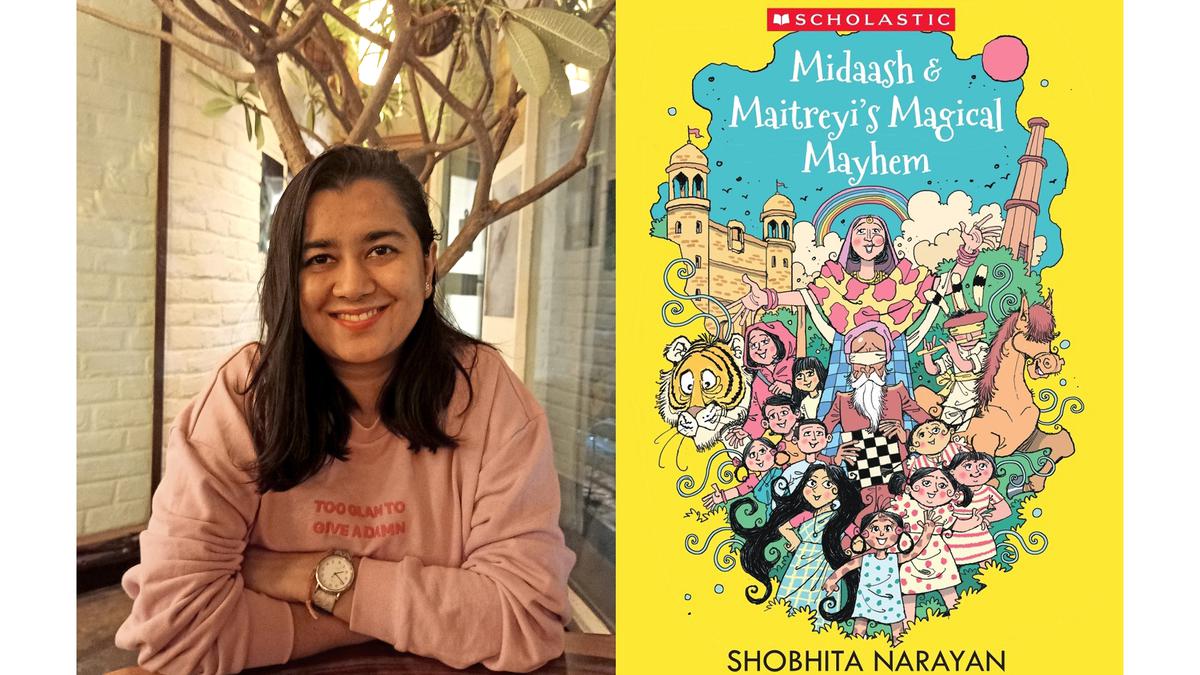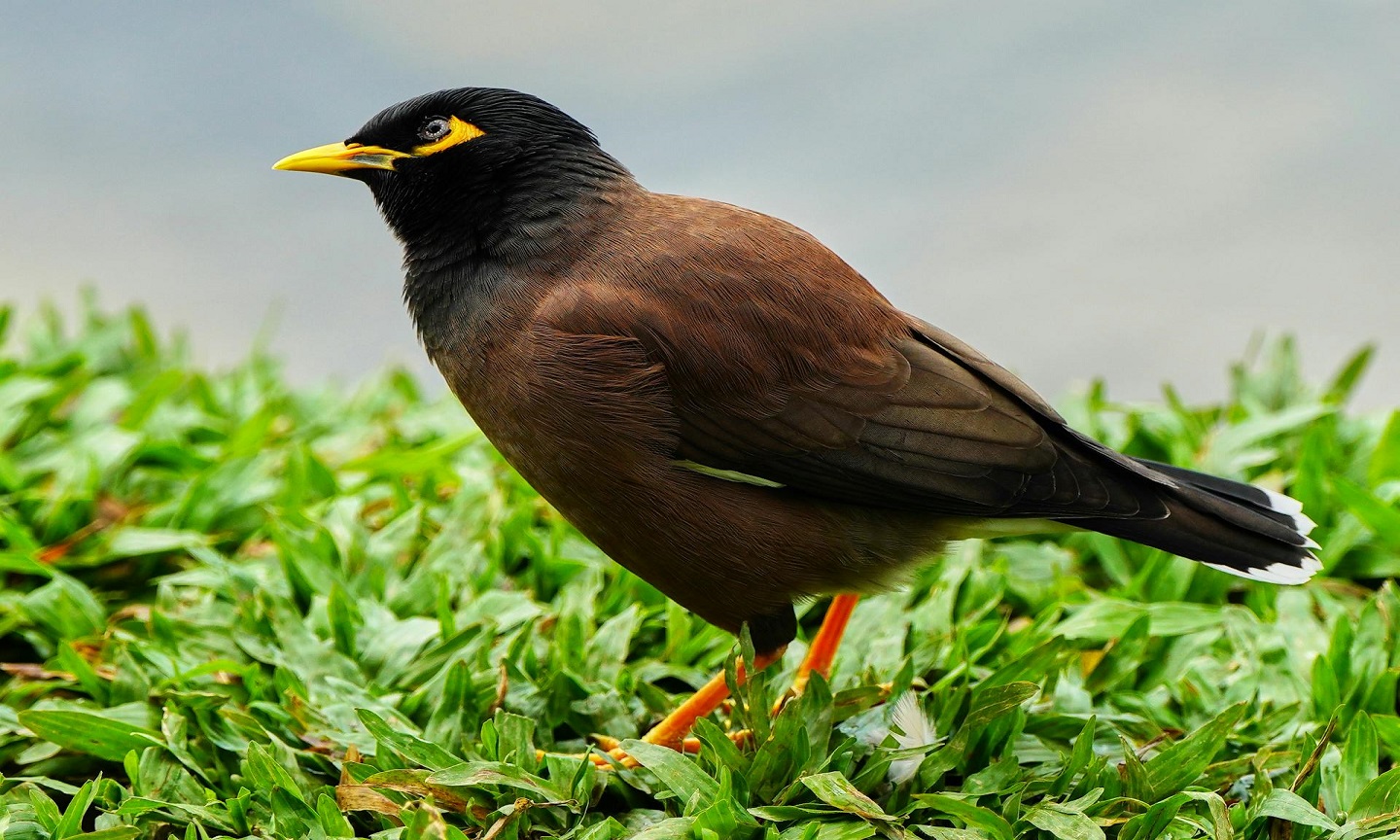- She Got You!
- Posts
- I was burnt out from my last job
I was burnt out from my last job
Says Shobhita Narayan, a writer & marketing specialist

Hello! 👋
Welcome to the fifth edition of She Got You!, a newsletter in which I share my conversations with women who create, make a difference, and are building the workplaces of the future.
Today's conversation is with Shobhita Narayan, a marketing and communications specialist and writer of Midaash and Maitreyi's Magical Mayhem.
Although Shobhita and I live in the same city, we have yet to meet. My interactions with her are always online, and her opinions and LinkedIn posts on everything from pop culture to books are great resources for marketers.
When not reading, you'll also find her making art, and this just in: Hyderabad-based bookstore Luna has bookmarks and vouchers with her art on them. She was formerly heading marketing and PR at Simon and Schuster and Hachette — and took a short career break before leaping into marketing again.
And here's why she's got you. 👇

Sunaina: Please tell me about yourself and what you do.
Shobhita: I am a creative soul who also believes in being practical. I have studied literature and marketing and enjoy different aspects of each. I have tried my hands at startups, headed the marketing and publicity department at an international publisher in my last role, and now work as a Communications Specialist at a SAAS company in Hyderabad. Content, digital, offline marketing, and PR — I have tried it all, really. I enjoy reading, writing, painting and watching anime and K-dramas sporadically. When I don’t want to do anything, I take long walks and play Pokemon Go obsessively.
Sunaina: Your debut book has just come out. What can we expect from it?
Shobhita: Well, for the longest time, I thought my debut novel would be a dark fantasy book for adults. That goes on to show how much of a leap of faith we must take as creatives. My debut, Midaash and Maitreyi's Magical Mayhem is a children's book and a retelling of six popular fairy tales. There are life lessons, and I particularly enjoyed writing it from an Indian point of view and creating a magical world for children. Oh, and I drew a map for it in the end (that was a lot of fun)!
Sunaina: Awesome! Your work in publishing has led you to work with international bestselling authors. Can you discuss its high points and share a memorable experience?
Shobhita: It’s a dynamic industry, and I got to work with many authors. There are stresses involved, given the time constraints. You learn multiple ways of marketing books and other products as well. There’s a lot that publishers accomplish behind the scenes with minimal resources. I loved making and executing marketing plans; there’s a lot of diverse thought involved.
Some authors who have made it big also understand that reaching that level takes time and energy. They are invariably kind, and sometimes, a thank you at the right time propelled me to keep going, especially when brooding over the book return numbers.
As a marketer and reader, I remember getting behind the books that I enjoyed personally. It is a joy even now to see books I pushed become big (A Man Called Ove, The Stationery Shop of Tehran, amongst others). I remember reading a dusty advanced reader copy of A Daughter of Smoke and Bone by Laini Taylor, absolutely loving it, and pushing it to retail. Lo and behold, she is well-known in India as well! A book called Falling by T.J. Newman came out in 2021 during COVID-19. I remember racking my brains to work on a social media plan to ensure engagement. The eighth Harry Potter was the pinnacle of my career, and I don’t think I have ever seen marketing as big as that book in fiction.
Although not a professional experience but a personal one, I loved getting a congratulatory message from Gabrielle Zevin, whose writing I adore! 😃
Sunaina: You’ve taken a career break for nearly a year. How did that go?
Shobhita: Well, I’ll be honest if I say it wasn’t disconcerting. I was burnt out from my last job, was getting married and knew I needed a break to refocus. Plus, I was moving cities and wanted to work on my fiction. I had been working on this dark fantasy for a decade, and no matter how much I wrote, the book refused to take shape. During my career break, I took a hard and long look and decided it was time to let this book go finally.
I worked on two other books instead: a children’s debut that just hit the stands and a romance manuscript that uplifted my spirits a lot (it is still a work in progress, but I loved how the book progressed). I did freelance a little bit, but writing was what occupied most of my time. I painted, read a bit, divided time between two cities frequently, and read a ton of marketing articles (and learned a lot, really).
Sunaina: Our society doesn't look at career breaks or sabbaticals positively. Have you faced any prejudice while taking a career break, and how did you deal with it?
Shobhita: It is a conundrum, but you must be mentally ready to face it. I had been working a lot. Don't get me wrong; I enjoyed the work, but somewhere, I realised the insane 12-hour days I was consistently putting in were not worth it. I wasn't present as much and was burnt out.
For me, the pressure was more internal than external. Learning to mute the voices was difficult, so I was figuring out if I would be alright with changing direction. Your identity shifts and shakes a little during a career break. Suddenly, you have all this time; you aren't beholden to clients or bosses. The first few months just whizzed by, and of course, I was trying many things together. There were the beginnings of snide remarks, but I had to learn how to tune out the voices until I was ready to get back out there again. I gave myself a timeline and stuck to it; one year is what I would take while I wrote without judgment. When doubtful and insecure, I spoke to friends and family, who helped me process my emotional turmoil.
You need to be clear about what you want from a career break. It can be something as simple as rest, but keep a timeline for your break. You don't have to be productive, but list small leisure tasks, the food you cooked, the shimmering seashell you discovered on a beach, and the people you met. When the year is up, you will realise that the little moments matter a lot. We are made richer by our lives and the memories we make. Plan out your finances before you take the plunge; it can be hard not to see a paycheck coming in every month. Also, reach out to a therapist if you are struggling more than usual; a career break should reinvigorate you.
Sunaina: Has your gender ever been a disadvantage at work? If yes, can you share an incident and how you dealt with it?
Shobhita: This is a constant struggle. I am a gentle person and not someone you would peg as a go-getter (quite untrue). I've often been told I must be a little more aggressive. So, there's a lot of bias that stems from being a woman just the way you are socialised. But I have realised you must keep pushing; you should draw boundaries when people push too much. It is challenging and even harder when trying to prove yourself.
In my first job in publishing, there was a period when my manager left, and I was in charge of the entire marketing and publicity department. I was barely a couple of years old into my working life, still finding my feet, and I remember someone telling me, "Tu toh gayee". Well, four months later, I got a promotion.
Sunaina: How do you keep up with all the latest marketing trends?
Shobhita: I have found two schools of marketers: those who prioritise study and those who prioritise getting their hands dirty through practice. I think you need a balance of both. Study allows you to develop innovative strategies, while practice allows you to examine real-time market conditions. I constantly upskill through courses, read many articles, attend webinars, and look at case studies. LinkedIn has been amazing in terms of the knowledge that everyone shares, and you learn so much from different industries.
Sunaina: You spoke about how gentle you are! I've noticed that in many cases, being gentle or nice is considered a weakness, especially for women. What are your thoughts on this?
Shobhita: Yes, I do feel this as well. Over the years, I have become much more hardened and needlessly aggressive at times in combat situations. I am much less gentle than I was when I started. But then I look at the female bosses I have had over the years; the ones I appreciate the most are kind. My current bosses are kind and understanding, and so was one particular female boss in publishing; I admire them all immensely. Whenever I tell myself I need to change, I remind myself of them. None of them are pushovers; they know how to work effectively without resorting to threats or insults — certainly, virtues to emulate. I am still learning how to be honest.






Reply